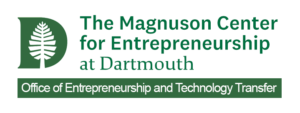Commencement Celebrates Resiliency, Entrepreneurial Thinking
The Class of 2021 faced unprecedented challenges and are entering a world in need of solutions, speakers said.

At the beginning of the 2020-2021 academic year, the prospect of an in-person commencement, let alone one without masks, seemed far-flung. But thanks to breakneck innovation in the vaccine space, Dartmouth’s class of 2021 was able to celebrate their commencement on Sunday with family and friends in what could easily pass for a “normal” ceremony.
The significance of that was not lost on the speakers at that event, including President Philip J. Hanlon, ’77.
“Fifty years ago, President Kemeny, in addressing the Great Dartmouth Class of 1971, remarked, ‘I think your class has seen more turmoil and changes of mood on campuses than any class in the history of higher education,’” Hanlon recalled during his address. “Class of '21, I think you've got them beat.”
Hanlon called on the class to recognize “that the things most precious to us are often the most fragile,” he said.
“Our health and well-being. Our friendships and family bonds. Our economic prosperity. Our democracy. Even this institution we all call Dartmouth, which has played more of a role in shaping the people you've become than you have yet to realize,” he said.
Amanda Chen, ’21, spoke about the importance of prioritizing mental health and of working together collaboratively. Chen discussed how her work as a mental health advocate was much less linear than her coursework — something many entrepreneurs can likely relate to.
“Nothing was predictable. I spent a lot of time in meetings for results that were not guaranteed. There was a good chance that after all of my efforts, nothing would happen, for reasons likely outside of my control,” she said in her address. “Despite this, I had no choice but to keep showing up, if I wanted a chance at making real change.”
Chen hinted at the fact that the pandemic, with all its tumult, has opened new opportunities for entrepreneurial thinking.
“The pandemic has shown us that there are far too many problems in the world, and far too few solutions,” Chen said. “If we want change to happen, in whatever field, now is the time to do it.”
In the commencement address, Annette Gordon-Reed, ’81, discussed the value of all life experiences, even those that seem like detours at the time.
“Even the things that we may not want to do at any given moment, can teach us valuable lessons. I have taken a somewhat circuitous path to where I am now,” said Gordon-Reed, a history scholar and law professor at Harvard.
She continued, “But every job I have had—even the ones that seem the most tangential to what has become the focus of my life—prepared me to write my first book and to get going in my current career. No experiences are total wastes.”
Being open and vulnerable, although frightening, is important, Gordon-Reed said.
“What I took away from my time here was the importance of moving through the world with that kind of spirit, facing life with a sense of optimism about what can be learned from every experience—having a sense of joy at the possibilities each new endeavor presents,” she said. “No one wants to appear naïve. But there is no protection to be found in cynicism–or being ‘wised up.’ Those postures are armor that do not provide an effective shield against the possibility of being hurt or disappointed.”
Gordon-Reed urged the class members to dive into a world that is ready for their enthusiasm as it begins to reopen and heal.
“You have made it to this moment, a testament to the spirit of which I have been speaking,” she said. “Now—it is time to ‘Greet the world, from the hills, with a hail!’—a world that badly needs your spirit and enthusiasm is waiting for you.”

